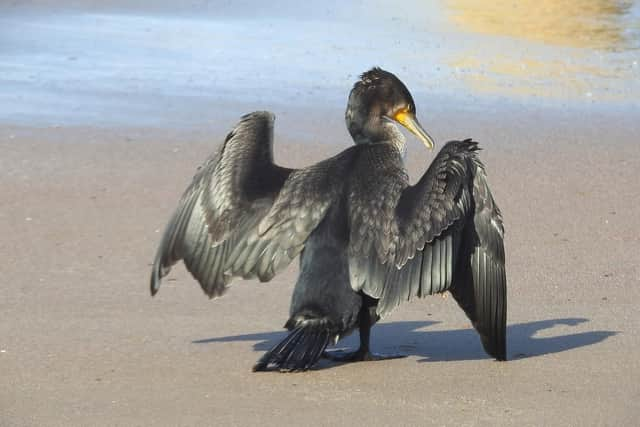On the Wildside: A new bird in town


Unpopular with anglers and fish farms, and poisoned by lethal pesticides polluting our waterways, the cormorants were very rare, at least inland.
Today, however, all this has changed. These wonderfully dramatic birds with their almost prehistoric appearance are very noticeable and particularly so because having been fishing they have to dry their wings in the open.
Advertisement
Hide AdAdvertisement
Hide AdUnable to oil their plumage they get wet and need to dry out.


The advantage of the feathers wetting is that the bird’s buoyancy is reduced and they can dive deeper for fish.
The bird pictured however, was a very approachable young cormorant on the beach at Whitby. I gather there are now three different species or sub-species recognised in Britain and they hybridise! The increasingly common inland ones differ from mainly coastal birds and seem to move colonised originally from Europe. The key to identification is in the shape of yellow patch around the beak, but you have to look very closely. Furthermore, because they hybridise there is a lot of variation and forms in-between the main species, and as these have spread then the predominantly coastal birds have also moved inland. So, what used to be very simple is now rather complicated.
The first record of the inland breeding cormorants was at Abberton Reservoir in Essex and where they nested in trees.
Advertisement
Hide AdAdvertisement
Hide AdThis was unlike the coastal ‘native’ population and turned out to be European birds of a different sub-species.
It is these which have then spread inland eventually to be joined by the native ‘great cormorants’ too. There is also an American species, the crested cormorant, occasionally finding its way over here, but this is still very rare. The name ‘cormorant’ derives from the Latin name for the crow family ‘Corvus’ and means ‘sea raven’, which seems quite appropriate.
Professor Ian D. Rotherham, researcher, writer & broadcaster on wildlife & environmental issues, is contactable on [email protected]